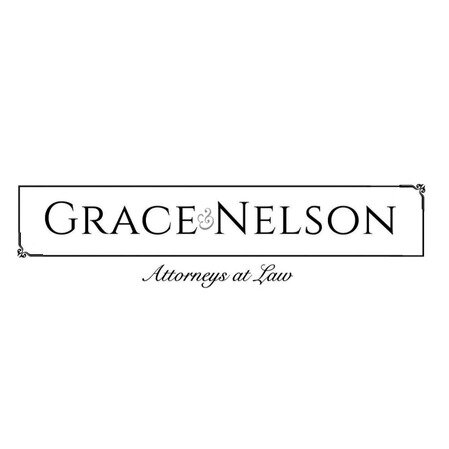Best Landlord & Tenant Lawyers in Ecuador
Share your needs with us, get contacted by law firms.
Free. Takes 2 min.
Free Guide to Hiring a Real Estate Lawyer
Or refine your search by selecting a city:
List of the best lawyers in Ecuador
About Landlord & Tenant Law in Ecuador
Landlord and Tenant law in Ecuador is governed by a combination of national legislation, particularly the Tenancy Law (Ley de Inquilinato), and various local regulations. The law aims to balance the interests of landlords and tenants, ensuring fair rental practices and the protection of both parties' rights. Most rental agreements are expected to be in writing, outlining the obligations and rights of each party. Rent increases, deposits, and eviction processes are also regulated to prevent unfair practices and ensure standard living conditions for tenants.
Why You May Need a Lawyer
There are several common situations in the realm of landlord-tenant relationships in Ecuador that might necessitate legal assistance:
Lease Disputes: Disagreements may arise concerning the terms of the lease agreement, including rental amounts, duration, and renewal.
Eviction Issues: Both landlords and tenants may require legal assistance when dealing with eviction matters, whether trying to enforce or challenge an eviction.
Non-payment of Rent: A lawyer can help navigate the complexities of recovering unpaid rent or defending against unjust claims of non-payment.
Repair and Maintenance Disputes: Legal help may be necessary when responsibilities for property repairs and maintenance are in dispute.
Subleasing and Unauthorized Use: Legal advice can help clarify the implications of subleasing or unauthorized commercial use of rented premises.
Local Laws Overview
Key aspects of landlord and tenant laws in Ecuador include:
Rental Agreements: Landlords are required to register lease agreements with the municipality. Contracts should stipulate all terms clearly, including rent, term, and conditions of use.
Rent Regulation: Laws limit rent increases to a maximum percentage after a certain period. Rent adjustments must follow the legal procedures established.
Security Deposits: Typically equivalent to one month's rent and must be refunded at the end of the lease if no damages are recorded.
Evictions: The eviction process is fairly detailed and strictly regulated, requiring multiple notices and, if necessary, judicial intervention.
Tenants' Rights: Tenants are entitled to a habitable living environment with essential services and facilities.
Frequently Asked Questions
What are the obligations of a landlord in Ecuador?
Landlords must provide a livable rental property and maintain the property so that it remains habitable throughout the rental period.
Can rent be increased during the lease term?
Rent increases are regulated, and landlords can only increase rent at specific intervals as dictated by law, usually not during a fixed-term lease unless stipulated in the contract.
What can a tenant do if a landlord fails to make necessary repairs?
Tenants can request repairs formally and may be able to deposit rent into court until repairs are made, but legal advice should be sought to avoid breaches of the contract.
How long does an eviction process take?
The eviction process in Ecuador can take several months due to the legal requirements for notice and potential court proceedings.
Is it mandatory to have a written rental agreement?
While oral agreements can be valid, written agreements are strongly recommended and are often required for legal proceedings.
Can a tenant sublet the property?
Subletting is generally allowed but must be permitted by the landlord in the lease agreement.
What rights do tenants have against wrongful eviction?
Tenants can challenge wrongful evictions in court, where the landlord must prove the eviction is justified under law.
How is a security deposit returned?
Security deposits should be returned after lease termination, provided no damages have been attributed to the tenant. If disputes arise, mediation or legal proceedings may be required.
Are pets allowed in rental properties?
Pet policies should be outlined in the lease. If not specified, landlords must approve any pets.
Can tenants negotiate rent payment terms?
Lease terms, including rent payments, can be negotiated and should be clearly outlined in the agreement to avoid misunderstandings.
Additional Resources
The following resources may be useful for those seeking legal advice related to landlord-tenant matters in Ecuador:
Municipal Housing Agencies: These provide information and mediation services between landlords and tenants.
Ministry of Urban Development and Housing: Offers guidelines and assistance concerning housing rights and obligations.
Local legal aid organizations: Non-profits and university legal clinics may offer free or low-cost legal assistance.
Real Estate Lawyers: Specialists in property law can provide in-depth assistance in more complex matters.
Next Steps
If you require legal assistance for landlord-tenant issues in Ecuador, consider these steps:
Assess Your Situation: Clearly define your problem and gather all related documentation, including contracts and correspondences.
Consult a Lawyer: Seek legal advice to understand your rights and options. Consider reaching out to a lawyer experienced in Ecuadorian property law.
Mediation: Explore mediation services for less adversarial dispute resolution, which might be available through local housing agencies.
Legal Action: If necessary, prepare for potential legal proceedings by working closely with your legal advisor.
Lawzana helps you find the best lawyers and law firms in Ecuador through a curated and pre-screened list of qualified legal professionals. Our platform offers rankings and detailed profiles of attorneys and law firms, allowing you to compare based on practice areas, including Landlord & Tenant, experience, and client feedback.
Each profile includes a description of the firm's areas of practice, client reviews, team members and partners, year of establishment, spoken languages, office locations, contact information, social media presence, and any published articles or resources. Most firms on our platform speak English and are experienced in both local and international legal matters.
Get a quote from top-rated law firms in Ecuador — quickly, securely, and without unnecessary hassle.
Disclaimer:
The information provided on this page is for general informational purposes only and does not constitute legal advice. While we strive to ensure the accuracy and relevance of the content, legal information may change over time, and interpretations of the law can vary. You should always consult with a qualified legal professional for advice specific to your situation.
We disclaim all liability for actions taken or not taken based on the content of this page. If you believe any information is incorrect or outdated, please contact us, and we will review and update it where appropriate.
Browse landlord & tenant law firms by city in Ecuador
Refine your search by selecting a city.














